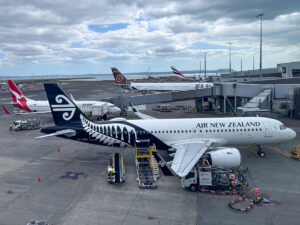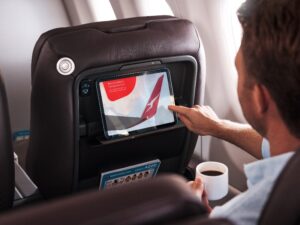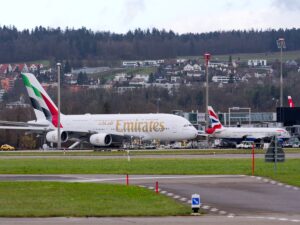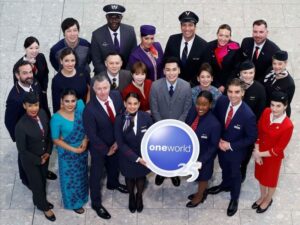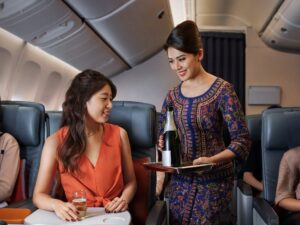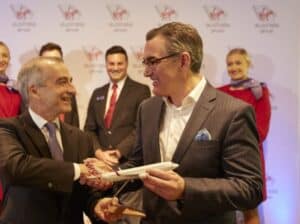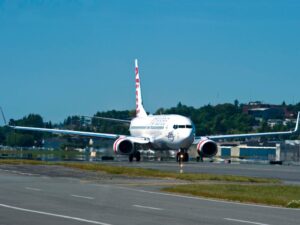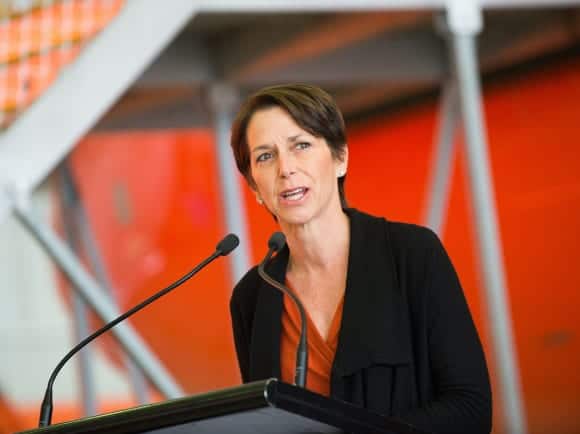
U.S. private equity firm Bain Capital formally took control of Virgin Australia yesterday, as Paul Scurrah leaves the organisation to make way for incoming CEO Jayne Hrdlicka. With the sale of Virgin to Bain Capital completed, Virgin Australia has now officially ended its voluntary administration after almost seven months.
Virgin Australia entered voluntary administration on 21 April 2020 owing $6.8 billion to creditors including employees, bondholders and customers. Administrators from Deloitte were appointed to manage the sale process, which lead administrator Vaughan Strawbridge described as “one of the most challenging administrations in Australia’s corporate history”.
“We have certainly had our fair share of challenges, but we have remained focused – undertaking a process with the objective of ensuring the business continued, to maximise job retention and ensuring the best outcome for all creditors,” Mr Strawbridge said.
“The successful conclusion of the administration is a tribute to the assistance and support given to our team by Virgin Australia’s dedicated, hard working and loyal management and staff, who kept the airline flying throughout, the unions who supported them and Virgin’s service providers, all working together to ensure that Australia’s aviation sector will remain vibrant and competitive in the post-COVID era.”
“While our formal role with the airline comes to an end, we do continue to represent the interests of creditors as we manage the process to assess claims and make distributions to creditors,” Strawbridge said.
After a competitive sale process which came down to Cyrus Capital Partners and Bain Capital, the latter was chosen as the preferred buyer in June. After outlining its future plans for the airline, and making a range of promises to unions and creditors including Virgin employees, the sale to Bain Capital was approved by creditors in early September. Deloitte had strongly recommended that creditors vote in favour of the sale to Bain as they believed it was the best possible outcome for all involved. If the sale had not gone through, liquidation would have been a possibility.
Bain has since said it’s sticking to its plan for Virgin Australia, which includes reopening airport lounges and retaining Business class seating, but moving to a mid-market “value” customer proposition. But Bain had also promised to keep Paul Scurrah as CEO – a promise it reneged on when it announced it would install former Jetstar boss Jayne Hrdlicka as CEO once the administration period was over.
With the voluntary administration now over, we’re expecting an announcement about the reopening of Virgin Australia’s airport lounges shortly.
Virgin Australia now in private hands
Yesterday, the federal court approved for 100% of Virgin Australia shares to be transferred to Bain Capital. This was the final step in the long-running sale process.
Before collapsing into voluntary administration, Virgin Australia was owned by airline conglomerates including Singapore Airlines, Etihad Airways, HNA Group and Nanshan Group, as well as Richard Branson’s Virgin Group. A small proportion of shares were also listed publicly on the Australian stock market.
Following yesterday’s transfer of VAH shares to a private equity firm, Virgin Australia has now been delisted from the Australian Securities Exchange (ASX) and existing shareholders have lost their investments. As it’s no longer a publicly listed company in Australia, this also could mean there is less transparency about Virgin Australia’s finances and strategy going forward. Publicly listed companies have greater reporting requirements in order to keep shareholders informed.
Shortly after Bain took full ownership, Richard Branson’s Virgin group picked up a 5% stake in the “new” Virgin Australia. This now gives Bain a 95% share in the airline, while Virgin Group owns the other 5%. That’s half of the Virgin Group’s previous stake.
Join the discussion on the Australian Frequent Flyer forum: Bain Capital takes Control of Virgin Australia
